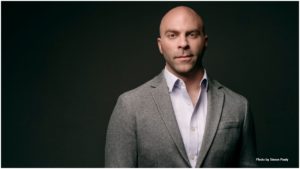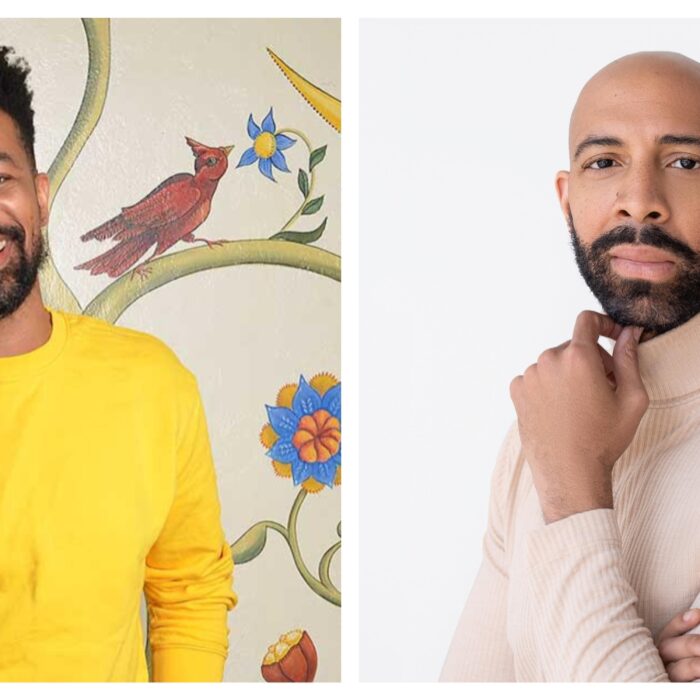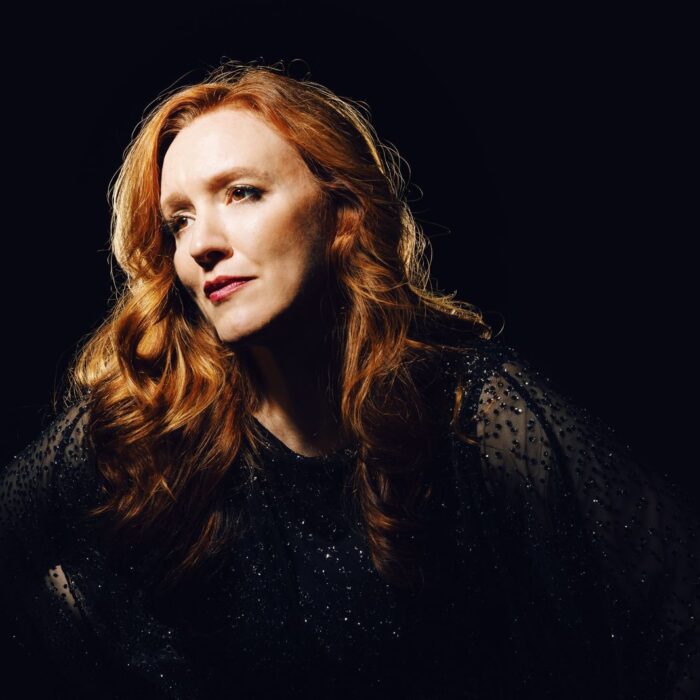
Q & A: Zachary Nelson On ‘Le Nozze Di Figaro’ & ‘La Bohème’
By Francisco SalazarSince finishing his ensemble position at the Semperoper Dresden, baritone Zachary Nelson has built a formidable resume making important company and role debuts.
Now he adds another major company debut in his favorite Mozart opera, “Le Nozze di Figaro.” The American baritone will make his first appearances with Arizona Opera as the Count in a new production. The season will also bring him back to the Santa Fe Opera, where he will also perform in one of his favorite operas.
In anticipation for these two big engagements Nelson spoke to OperaWire about the Count, why “Le Nozze Di Figaro” is the perfect opera and how Puccini and Mozart are similar.
OperaWire: What excites you about making your Arizona opera debut?
Zachary Nelson: This is my first time in Arizona, which is great because I love the Southwest having performed in New Mexico a lot. So I am looking forward to getting to know the area a lot better.
In terms of the work, this is the second time I will be doing the Count in “Le Nozze di Figaro.” I have done Figaro countless times. I first sang it in Dresden when I was a young artist at the Dresden Semperoper and that run was the final run of the old production of the opera. And the next season I debuted the new production as Figaro. As much as I love it, this opera will always have a special place for me and I think it is the most perfect opera ever written. It’s funny and has a great drama and it has a soul.
OW: Having done both roles of the Count and Figaro, do you have a preference for one role?
ZN: That’s a tough question because they both fit perfectly for me vocally and dramatically. In terms of characters I am biased because, in terms of literature, Figaro is the best protagonist you could ever think of. Figaro is incredibly smart and conniving but the Count is everything that Figaro isn’t.
The Count tries to be conniving but he’s isn’t and then he tries to make statements and he can’t. Just look at his aria and you realize he doesn’t say anything. He continually says he will do something but we don’t even know what that is.
As for vocally, the Count is perfect for my voice but I also feel the same exact way about Figaro’s music. The range of the two roles is almost identical, except Figaro sings a couple of F naturals and the Count sings one F sharp and an optional G. The low is also similar. But ultimately it really matters on what your temperament is on a given day and right now I am really preferring the Count.
OW: The Count is complex because he can come off as a bit villainous and unsympathetic. Yet, in the story that precedes this one, he was the hero. How do you view him as a character and how do you bring out good qualities in him?
ZN: Making him sympathetic is tough because he is a man that is trying to destroy two marriages even though he thinks he is destroying one. If you play the Count as true as you can and follow the text, you will find some sympathy even if he isn’t sympathetic. And I think that isn’t the point of the character. I think when you play a villain, you don’t want to only play a villain. You want to follow the text and that will lead you to discover more of the character.
I think the only place the Count is really sympathetic is at the end when the music changes and he asks the Countess for her forgiveness. It’s a real moment of nakedness and he is so exposed. It’s the moment he realizes that he has done the worst thing in his life. If the Countess forgives him at the end, then we have found the sympathetic part in the character. But that depends on the production.
OW: Having performed this work so many times, what kinds of nuances have you found over time?
ZN: Every time I have done it, I have come to the realization that this opera is really Susanna. Everything is centered around her and it’s these two men that after her and fighting for her. One is in a noble way as Figaro and the other in a sinister way as the Count. I think that the little things I find are phrasing and the recits are when you find the nuances and the nitty gritty of Mozart and Da Ponte. You do find that you have something mastered but you really don’t. I had a teacher once tell me that learning Mozart is easy musically, but it will take a life of mastery to fully understand Mozart.
Having done Figaro so many times, I thought I had him figured out. But then working with someone else or with a different partner or Countessa, with one thing in rehearsal that is different, my mind goes to another direction and a new idea comes out. And Mozart really allowed for collaboration with artists. It seems bare on a score, but once you’re in it, it’s beautifully complex.
OW: How does Mozart relate to our modern day society?
ZN: With Mozart, when he was writing it, it was the Enlightenment. I remember talking with one director saying how often operas end with women dying. How often do we see this toxic masculinity come into play in opera. But with Mozart, he was a man of his time and a man before his time. You have these toxic men he gives you and you have women fighting against that. And I think that “Le Nozze di Figaro” really fits to the core issues of society. You can put the opera in every time period and it is going to work. It’s a timeless and you definitely relate the Count and his power to the #MeToo movement. It never feels old or put on because it is so relevant and you can approach it as a blank canvas.
OW: With this cast, you’ll be working with many rising stars and artists you have not worked with before. What is exciting about this opportunity?
ZN: When you’re working with new people, you’re working with a group of potential new friends. It’s also the opportunity to discover more and you’re seeing how willing new people will open up to each other and we find that through the rehearsal process. It’s where the creation happens and it’s always great to work with new casts. Having worked in the ensemble program in Germany, I worked with many friends and it was almost like you were in high school. But getting new points of view is also important and new artists show you new things and you start learning and understanding the piece in a much better way.
Another interesting thing about this production is that I’ve known one of the Figaro’s for about five years but we’ve never worked together. So I am looking forward to creating something with him and that is also exciting.
OW: In the summer you return to Santa Fe Opera for Marcello in “La Bohème.” It will be your fifth summer with the company. Tell me about your experience with the Santa Fe Opera and the excitement of returning there?
ZN: It’s not a hard sell to bring me back. When I first went there in 2012, I was an apprentice artist and I had a great summer doing the role of Angelotti in “Tosca” and I was also covering the role Mandryka in “Arabella.” I was also in all five choruses’ for every single show. It was awesome and exhilarating.
At the end of that summer, they had me audition on the stage for a role that had not been cast in “Le Nozze di Figaro” and it happened to be Figaro, and they liked it and brought me in. And now this will be my fourth principle role with the company.
The great thing about Santa Fe is that they harbor creative juices and they bring in great people and it’s awesome. I am excited to work on this production as well as singing one of my favorite operas.
OW: This is a role you have done so much and which you recently did at the Lyric Opera of Chicago. Tell me about that experience?
ZN: I was in the Richard Jones production and it was a fantastic take on “La Bohème.” It was a beautiful and character-driven production that highlighted the intimacy of the characters. The cast was fantastic and it was the first time I had ever worked with Michael Fabiano, who I have known for a decade. We had so much fun and we worked so hard when we did that production.
OW: Puccini and Mozart are so different in their musical approaches. What are some of the similarities and differences between the two?
ZN: There is a difference in the musical language at some points. But Mozart was like the Beatles. He did something no one had ever done before and he turned the opera world on its head. And I think you can see those ripples everywhere, including in Puccini. Tthere is a bigger orchestration in Puccini but if you go back to the words, the words drive the drama. Puccini is a master of musical colors as well and you can hear it all in the music. But as much as there are differences, Puccini and Mozart are similar and it’s great to do both in one season.
OW: How do you view Marcello and Musetta’s relationship and do you think they will stay together after this tragedy?
ZN: It’s a production to production thing and I try not to have one stock feeling and I try to be open. But I think it is all about how Act three is treated. Are things great in Act three or is Marcello regretting being with her? The other thing is how violent is the Act three quartet? Do they get to a point where they say such terrible things that they can’t be together again? Are they able to push it aside? That is what is going to dictate Act four. If we have got to that point of no return, it shows that they can be in the same room but it is evident that it won’t work out. But it can also bring them together because they realize how much they love each other and they realize how short life is. It’s the beauty of theater because it can be open to interpretation.
OW: Do you have a favorite moment in “La Bohème?”
ZN: For me, the moment after the duet in Act four when Schaunard and Colline come in and all they brought is a fish and a piece of bread. Then there the big fight that happens and I just find it really fun and this is the peak of their friendship. It’s the four of them living carefree and then the chord hits where Musetta comes in. At that moment their whole world changes forever and that moment is the most impactful part of the opera. The gaiety and frivolity of their lives will never be the same. They will witness something that will shatter them. In the Richard Jones production, he highlights how hard this moment is when Colline and Schaunard run out. They can’t face it and it’s a big shock for them.
OW: What excites you about bringing one of your signature roles to Santa Fe?
ZN: Every time I’ve done a role at Santa Fe, it’s been my debut in that role and there is a lot of pressure working on the roles. This time around it’s a role I know very well and I’m looking forward to challenging myself and finding something new. I’m looking forward to digging deeper than I normally do because I’ve done it so many times. I try to approach an old role in a new way every time I do it again.
I remember when I was a kid I read a story about Rubenstein going over to Picasso’s home. And every morning Picasso would paint the same thing over and over. So Rubenstein asked him, “Why do you keep painting the same objects over and over again?” and Picasso said, “so I can try to find something new.” I find that incredibly inspiring. When doing it over and over again, if you think you know it then you’re not going to give it everything you’ve got. That’s what I am looking forward to. I want another challenge to sink my teeth into something I know, but I know I don’t know well enough yet.


